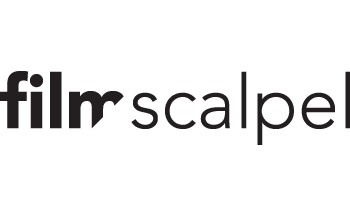Strong Female Characters
At the 2017 Cannes film festival, jury member Jessica Chastain expressed her dismay at the way female characters were presented in the competing films (1). She went as far as calling many of the portrayals “quite disturbing” and called for more fully-rounded female characters. “Ones that are proactive, have their own agencies, don’t just react to the men around them”. Chastain’s remarks are among a long list of similar concerns over the on-screen representation of women (and the underrepresentation of women behind the camera as well).
Hollywood is often singled out for its shabby treatment of female characters. It’s a longstanding problem that no single blockbuster movie with a female lead can easily remedy. Even when Hollywood’s dream factory churns out a movie with a “strong female character”, then what exactly is meant by that strength? What physical and personality traits are these strong fictional women endowed with? That is the question this video essay by film student Ulrike Venken tackles.
Venken asserts that most “strong female characters” derive their purported strength from male characteristics: physical strength, wisecracking, cocky arrogance and other key attributes of many a male action hero. But there is another way for a female character to be strong. Using Louise, the lead character in Arrival (2016, Denis Villeneuve), as an example this video essay charts another path to portraying feminine strength.
In his fine video essay on Aliens, essayist Leigh Singer interpreted Ellen Ripley as the mother of all modern action heroines. His video essay stresses the importance of motherhood to this character, but the fact remains that Ripley still displays a lot of behavior that is typically associated with masculinity (handling assault weapons, driving a power loader). Her motherly affection for Newt is accepted by the marines that surround her because she has first proven to be a woman of mettle – and metal. In Arrival, Louise is strong solely because of character traits that are traditionally termed female. Maybe Louise will prove to be the template for yet a new generation of female film heroines.
(1) Watch her remarks at the Cannes press conference on the website of The Hollywood Reporter.
This video essay includes clips from:
Resident Evil: The Final Chapter [feature film] Dir. Paul W. S. Anderson. Constantin Film et al., GER, 2016. 107 min.
Sucker Punch [feature film] Dir. Zack Snyder. Warner Bros. et al., USA, 2011. 110 min.
The Hunger Games: Mockingjay – part 2 [feature film] Dir. Francis Lawrence. Color Force et al., USA, 2015. 137 min.
Made in U.S.A [feature film] Dir. Jean-Luc Godard. Anouchka films et al., FR, 1966. 90 min.
Ghost in the Shell [feature film] Dir. Rupert Sanders. Paramount Pictures et al., USA, 2017. 107 min.
Underworld: Blood Wars [feature film] Dir. Anna Foerster. Lakeshore Entertainment et al., USA, 2016. 91 min.
Catwoman [feature film] Dir. Pitof. Warner Bros. et al., USA, 2004. 104 min.
Lara Croft: Tomb Raider [feature film] Dir. Simon West. Paramount Pictures et al., USA, 2001. 90 min.
Arrival [feature film] Dir. Denis Villeneuve. Paramount Pictures et al., USA, 2016. 116 min.
Legally Blonde [feature film] Dir. Robert Luketic. MGM et al., USA, 2001. 96 min.
Beauty and the Beast [feature film] Dir. Bill Condon. Walt Disney Pictures et al., USA, 2017. 127 min.
Game of Thrones [television series] Created by David Benioff & D.B. Weiss. HBO et al., USA, 2011-2017
Movies Featuring a Strong Female Lead (according to Netflix), 2016
Joss Whedon’s Equality Now Speech, 2006
The music used is:




